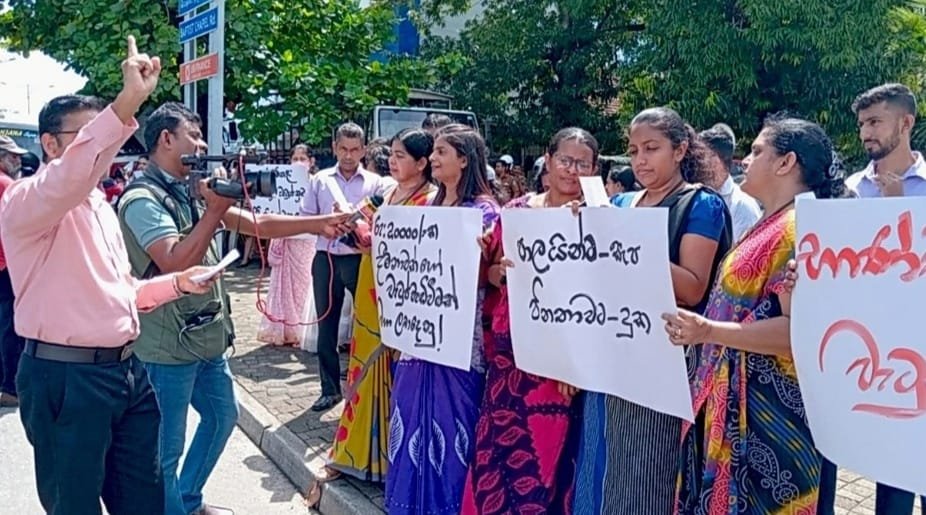
Hundreds of Thousands of Public Sector Workers Demand Pay Rises, Oppose Austerity Measures in Sri Lanka
Hundreds of thousands of Sri Lankan public sector workers demonstrated this week to demand pay increases and protest against Wickramesinghe government’s social attack, which are being dictated by the International Monetary Fund. On October 30 Monday, about 100,000 central and nationwide lunch-hour protest to demand a 20,000-rupee monthly pay increase. They also called for the re-establishment of a pension scheme denied to all public sector employees recruited over the past six years.
Development officers, state administrative services employees, village officers and postal workers joined Monday’s protest. They chanted slogans opposing any state repression of their agitation. Monday’s protest was called by the Collective of State and Provincial State Services Trade Unions (CSPSSTU), a combine over 40 trade unions, including the Development Services Officer’s Union (DSOU). Members of the United Postal Trade Union Front and State Administrative Officers Association members also participated.
About 15,000 Public Health Inspectors held a sick leave campaign to demand and increase in oil and motorcycle allowances. On Wednesday More than 20,000 thousands power workers held a one-day sick leave campaign opposing privatisation of the Ceylon Electricity Board (CEB) and increased electricity tariffs. They also demanded rectification of salary anomalies. Around 600 employees demonstrated outside the CEB head office in Colombo. On the same day, several thousands health workers, including nurses, attendants,laboratory professionals and office workers, staged a half – day strike and protested outside their respective hospitals across the country. The action was organised by the Health Trade Union Collective, called for a 20,000-rupee monthly wage increase, a five -day work week and several other demands.
About 400 professionals, including doctors, University teachers and bank employees, held a separate protest on Wednesday. They were opposing the
government’s new Pay-As-You-Earn (PAYE) taxes. The Government Medical Officers Union called a district-wide one-day strike. This week’s protests followed a demonstration on October 24 by over 4,000 teachers and principals outside the Education Ministry. They were demanding a 20,000 rupee pay hike and increased government spending on education. Police brutally attacked the protesters. On October 27, tens of thousands of teachers demonstrated in every major Sri Lankan city denouncing the police assault on their colleagues.
The rising tide of protests is another powerful expression of seething anger among working people against the Wickramesinghe government’s attain social conditions and democratic rights. They are part of increasing militant action by the international working class against job destruction and the rising cost of living.






